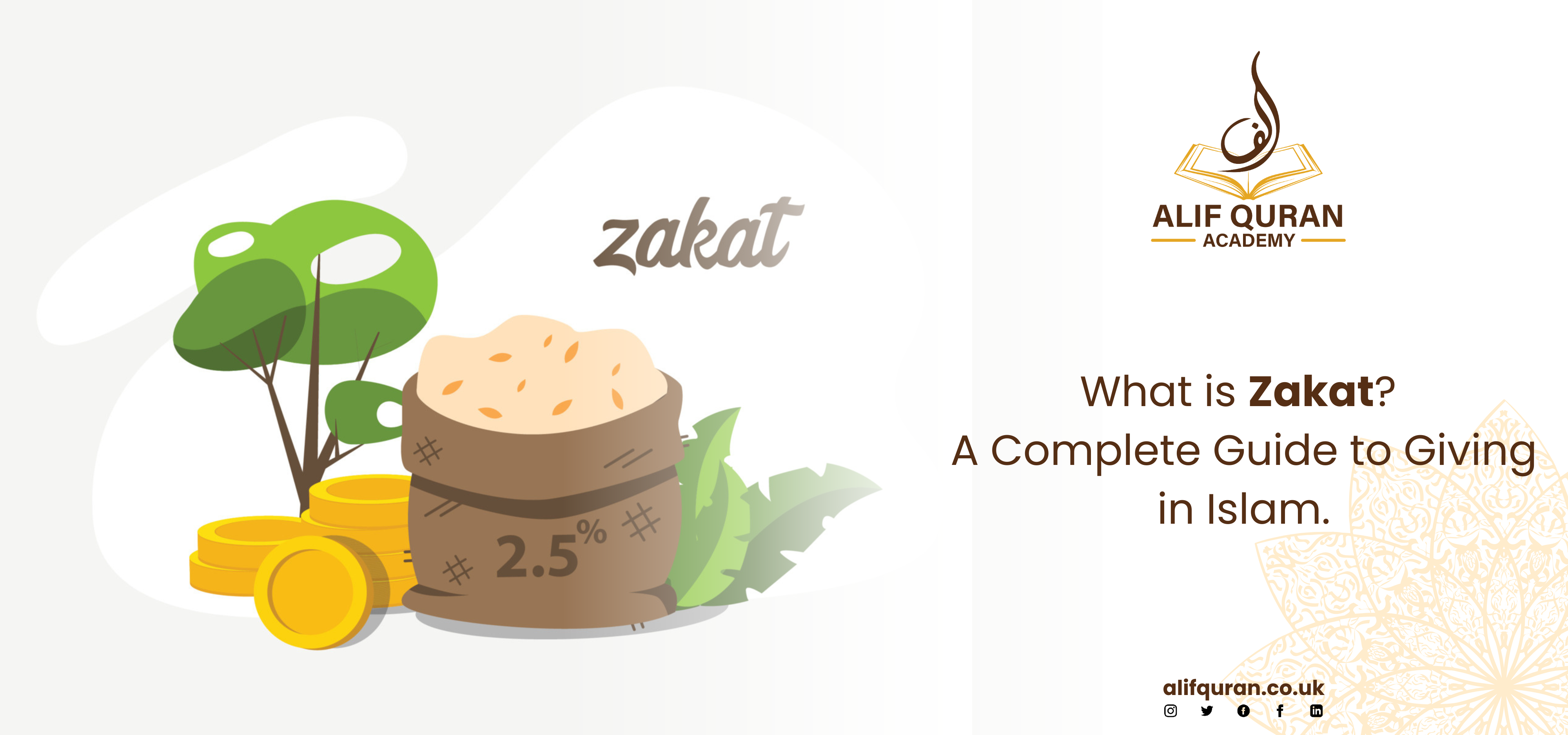
What is Zakat? A Complete Guide to Giving in Islam
Zakat is one of the Five Pillars of Islam, and it holds significant importance in a Muslim’s life. It is a mandatory act of charity that helps purify one’s wealth and provides financial assistance to those in need. In this complete guide, we’ll explore what Zakat is, who is required to give it, how much to give, and why it is such an essential part of a Muslim’s religious practice.
What is Zakat?
Zakat is an Arabic word that means “purification” or “growth.” In Islam, Zakat refers to the compulsory act of giving a portion of one’s wealth to those who are less fortunate. It is an obligation for Muslims who meet specific financial criteria and is intended to help reduce poverty and inequality in society.
Zakat is not just a form of charity—it’s a way to purify your wealth and soul. The Quran teaches that giving Zakat helps cleanse a person’s wealth by removing greed and selfishness and reminds Muslims of the importance of sharing with others.
“Take from their wealth a charity to purify them and sanctify them.” (Quran 9:103)
Why is Zakat Important?
Zakat is a means of purifying one’s wealth and spiritual self. It helps reduce social inequality, providing financial support to the poor and needy. When Muslims give Zakat, they acknowledge that all wealth belongs to Allah (SWT) and that it is their responsibility to share it with others.
The act of giving Zakat also encourages empathy and compassion, allowing Muslims to remember the struggles faced by those less fortunate. It promotes social justice and strengthens the bonds of the Muslim community (Ummah), ensuring that wealth circulates and helps all members of society.
Who is Required to Give Zakat?
Not every Muslim is required to pay Zakat. Certain criteria need to be met before a Muslim is obligated to give Zakat. Here are the basic conditions:
1. Muslim Status
Zakat is only obligatory for Muslims. Non-Muslims are not required to give Zakat in Islam.
2. Ownership of Wealth Above Nisab
To be required to give Zakat, a person must possess wealth that meets or exceeds a certain minimum amount known as the Nisab.
The Nisab is the threshold at which Zakat becomes obligatory. The Nisab is based on the value of gold or silver.
For example, if the value of gold is used as the measure for Nisab, the Nisab amount would be equivalent to 85 grams of gold. If your wealth (savings, investments, or assets) is equal to or more than this value, you are required to give Zakat.
3. Ownership for One Full Year
Zakat is only due on wealth that has been in a person’s possession for a full lunar year (Hawl). This means that if you have held wealth that meets the Nisab for a year, you must give Zakat on it.
4. Free from Debts
To give Zakat, your wealth should be free from significant debts. If your debts exceed your wealth, you are not obligated to pay Zakat.
How Much is Zakat?
Zakat is typically 2.5% of your wealth that exceeds the Nisab. This includes savings, gold, silver, business inventory, and other forms of wealth that have been in your possession for a year.
For example, if you have $10,000 in savings that have been with you for a full year, and the Nisab threshold is met, you are required to give 2.5% of that amount in Zakat.
Zakat Calculation Formula:
- Zakat Amount = (Total Wealth Above Nisab) × 2.5%
This is the basic rate, and there are specific rules for different types of wealth, including agricultural produce, livestock, and trading inventory.
Example:
- If you have $5,000 in savings for a full year and the Nisab is $3,000, your Zakat would be:
- Zakat = $5,000 × 0.025 = $125
Who Receives Zakat?
Zakat is meant to benefit those in need. It is specifically prescribed for eight categories of people mentioned in the Quran (Surah At-Tawbah, 9:60):
- The Poor (Al-Fuqara) – Those who do not have enough to meet their basic needs.
- The Needy (Al-Masakin) – Those who are in financial difficulty but may not be openly poor.
- Zakat Collectors (Amil Zakat) – Those responsible for collecting and distributing Zakat.
- Those Whose Hearts Are to Be Reconciled (Muallafatu Qulubuhum) – New Muslims or those who may need financial help to strengthen their faith.
- Those in Bondage (Ar-Riqab) – Slaves or those who need to be freed from captivity.
- Those in Debt (Al-Gharimun) – People who are in debt and unable to repay it.
- In the Path of Allah (Fi Sabilillah) – Those striving in Allah’s cause, such as those involved in religious education or jihad.
- The Wayfarer (Ibn As-Sabil) – Travelers who are in need of financial help.
It is important to ensure that your Zakat goes to the right recipients. Many trustworthy charity organizations and local mosques facilitate Zakat collection and distribution, making it easier to ensure that your Zakat reaches those who need it.
How to Give Zakat?
- Calculate Your Wealth: First, you need to calculate the total amount of wealth you own that exceeds the Nisab.
- Determine the Zakat Amount: Multiply your wealth above the Nisab by 2.5% to determine how much Zakat you need to pay.
- Choose the Recipients: You can donate your Zakat to individuals in need or through a charity that ensures it reaches the eligible recipients.
- Give Directly or Through a Charity: You can either give Zakat directly to those in need or donate it to a registered charity that is responsible for distributing Zakat.
When Should You Give Zakat?
Zakat is typically given during the Islamic lunar year after it has been due for one year. However, many Muslims prefer to give their Zakat during the month of Ramadan because of the increased blessings during this holy month.
The Spiritual Benefits of Zakat
- Purification of Wealth: Zakat purifies your wealth and removes greed. It serves as a reminder that your wealth is a trust from Allah and must be used responsibly.
- Rewards from Allah: Giving Zakat brings great rewards from Allah. The Quran promises that those who give Zakat will be rewarded both in this life and the Hereafter.
- Empathy and Compassion: Zakat encourages Muslims to empathize with those who are less fortunate and fosters a sense of social responsibility.
- Strengthening the Community: Zakat helps strengthen the bond within the Muslim community by ensuring that the less fortunate are supported and cared for.
Conclusion
Zakat is a fundamental part of Islamic faith and practice. It is not only an act of charity but also a means of spiritual purification and growth. By giving Zakat, Muslims fulfill their religious duty and help build a more just and compassionate society. If you meet the criteria, make sure to give your Zakat regularly and on time. Whether you give it directly or through a trusted charity, your act of kindness will help those in need and bring immense blessings into your life.





